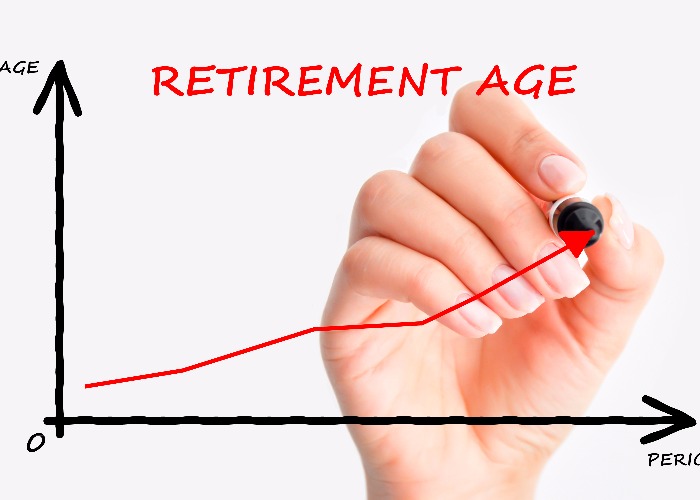Second State Pension review launches with all eyes on retirement age

Plans to bring forward retirement age hike to 68 by seven years could be halted by changing life expectancy, analyst claims.
Plans to officially bring forward the scheduled retirement age hike to 68 are in the spotlight after the Government launched its second State Pension age review yesterday.
But one retirement analyst has suggested that these plans could be put on hold as a result of increases in life expectancy slowing and the uncertain long-term impact of COVID.
At present, the State Pension age is set at 66 and will rise to 67 by 2028.
The following increase, to 68, is technically due to be rolled out from 2044 to 2046.
However, in its first State Pension age review in 2017, the Government said it wanted to look at bringing this forward to 2037 and 2039.
That's due to be one of the key focuses of this second review, as the Government outlined yesterday:
"As the number of people over State Pension age increases, due to a growing population and people on average living longer, the Government needs to make sure that decisions on how to manage its costs are, robust, fair and transparent for taxpayers now and in the future."
Find out how much the State Pension will be worth to you
Changing life expectancy a factor
Helen Morrissey, senior pensions and retirement analyst at Hargreaves Lansdown, has suggested the review could "put the brakes" on the proposed rise.
"With increases in life expectancy slowing and the long-term impact of COVID as yet unknown, this review comes at an interesting time," she said.
"Part of the review will look at changes in life expectancy.
"While it had been proposed that the increase in State Pension Age to age 68 should be moved forward to 2037-39, an analysis of the latest life expectancy data as part of this review could stop this in its tracks."
Could the retirement age change based on where you live?
Another interesting aspect of this second pension review is that it's finally going to look at the impact massively differing life expectancies across the UK has on the amount of State Pension someone receives.
"It will also consider other factors that feed into the debate on State Pension Age," Morrissey explained.
"This includes regional differences and should open the debate about healthy life expectancy – the ability to keep working – and how it varies hugely across the country.
"Someone might have a life expectancy of 80 but not all that time will be in good health and many people will find it impossible to work up to and beyond current state pension age.
"Recent data from Public Health England showed a man in Kensington has a life expectancy at birth of 84.2 and a healthy life expectancy of 61.3.
"Meanwhile, a man in Blackpool has a life expectancy of 74 but a healthy life expectancy of 53.7."
"However, the Government must also balance this with meeting the enormous ongoing cost of the state pension, ensuring the State Pension remains sustainable in the long term while keeping track of changing working patterns and ongoing cost."
State Pension tweaks and retirement planning
We'll have to wait until 2023 to learn the findings of this second review.
Nonetheless, it's fair to say the prospect of dramatically bringing forward the age hike to 68 remains a distinct possibility despite the changing life expectancy trends.
With the Treasury's coffers being hammered by COVID, and with the retirement age increase projected to save £74 billion by 2045/46, the temptation is clear to see.
And it's not hard to see future State Pension reviews recommending further pension age hikes being brought forward as well.
This could have a massive impact on the retirement plans.
If you're currently in your 30s or 40s, the age at which you can claim the State Pension could increase by one or even two years more than currently expected by the time you actually retire.
That would you leave you with a financial hole of more than £18,000 in today's money to plug over the course of your working life.
Retirement strategies from loveMONEY:
What to do in retirement: financial and lifestyle decisions
Comments
Be the first to comment
Do you want to comment on this article? You need to be signed in for this feature
